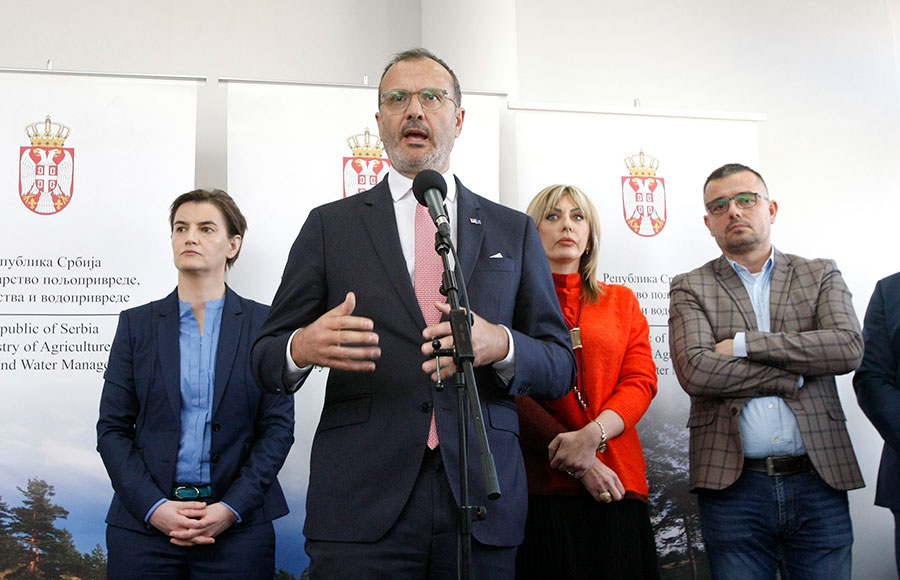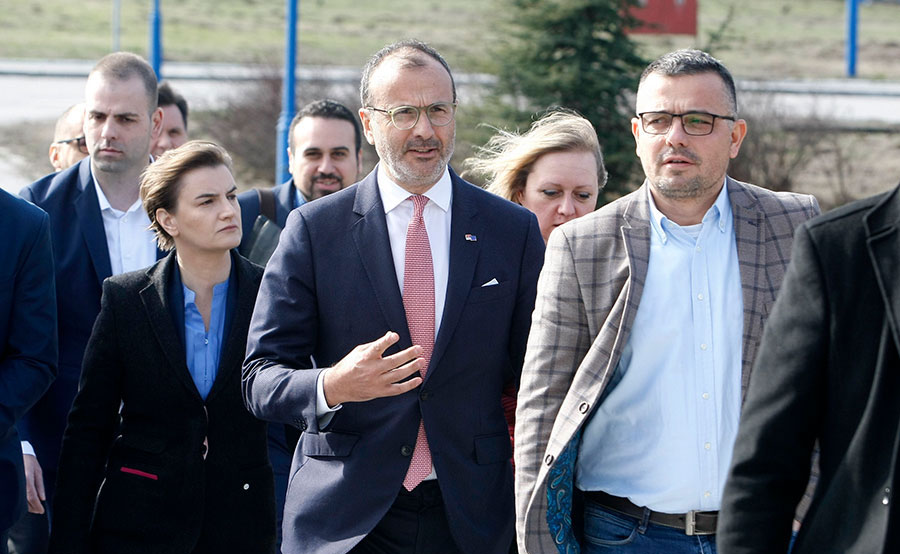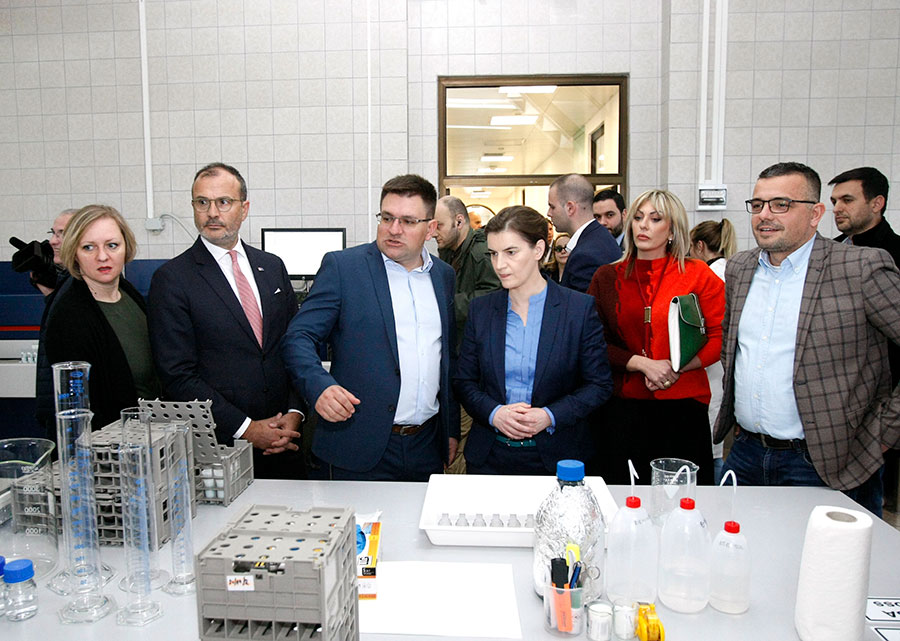Prime Minister Ana Brnabic, Ambassador Sem Fabrizi – Head of EU Delegation to Serbia, Minister of Agriculture Branislav Nedimovic and Minister of European Integrations Jadranka Joksimovic together visited the Directorate for national reference laboratories, opened with support from the EU.
“All milk producers will have to test their products two times a month at the National laboratory for milk control,” said the Prime Minister and added that those analyses will be free of charge, and that every manufacturer will receive guidelines concerning what to do if a discrepancy between the quality of their products and European standard occurs.
“The fact that Serbia now has an accredited National laboratory means safer and better food quality for citizens and the standardisation of product quality as well as an open and fair market for manufacturers,” said Brnabic.
Head of EU Delegation to Serbia Sem Fabrizi said that the opening of the new accredited laboratory for milk testing is an important step forward not only in improving the safety and quality of food in Serbia, but also for Serbia’s path to the EU membership.

Foto: Emil Vaš
He stressed that Chapter 12, dealing with safety and quality of food, is the most complex and technologically most demanding chapter in the EU accession process.
He added that EUR4.5 million out of EUR8 million allocated for the Directorate went to centre’s reconstruction while the rest was invested staff training.
“Serbia deserves the best standards in food quality, and this centre represents additional encouragement in the EU accession process,” said Fabrizi.
Minister of Agriculture Branislav Nedimovic said that Serbia will receive a Laboratory for food safety in May or June, and that the National laboratory for milk control is important in order to establish a certain quality of milk and dairy products on the market.
It is important that national, accredited laboratories for food control exist in Serbia because they are vital to fulfilling requirements needed to open Chapter 12 dealing with food safety.
Answering a question whether Serbia aligned aflatoxin values in milk with the European standards, he said that our country “strives to do so,” but that the aflatoxin levels prescribed in Serbia still stands at 0.25 μg/l, while EU countries limit it to 0.05 g/l .

Foto: Emil Vaš
Minister of European Integration Jadranka Joksimovic said that the EU financed the project with EUR8 million and that the Serbian Government participated with around EUR3 million.
“Working together and in synergy, we managed to secure functioning of an umbrella institution for food quality control, important for our citizens and manufacturers who wish to put their goods on the European market,” stressed Joksimovic.
Joksimovic said that the current level of aflatoxin in milk in Serbia is not completely coordinated with the EU, but that doesn’t mean that amount poses a threat to the safety of the citizens.
“That is not a bad thing, or something that is contrary to food safety, it is just not coordinated with rules of other countries that joined the EU,” said Joksimovic and added that the mutual agricultural policy is very demanding and complicated.
All countries that negotiated with the EU adopted some transitional periods because, unlike the Member States, which have a number of subsidies to increase the competitiveness of their manufacturers, candidate countries do not have such policies at their disposal.




